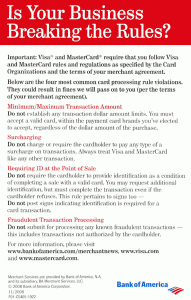Be Especially Careful When Media and Pundits "Teach" You the History of Nazi Germany
I once was taking a course on the history of the Roman Empire (Garrett Fagan via the Teaching Company) in which the lecturer at the end of the course engaged the ever-popular topic of "why did the Roman Empire fall?**" He made an interesting observation that could equally well be applied to many of the great questions of history -- that many explanations said more about the time the explanations were made in than they necessarily said about the historical period being studied. Edward Gibbon was part of an 18th century anti-religious enlightenment movement and thus concluded the Roman Empire was brought down by Christianity, which made the Romans too docile to fight back against the barbarians. Similarly Victorians found the Romans fell due to moral dissipation, Marxists discovered it was due to class warfare, and modern academics steeped in environmental sustainability have found that the Empire collapsed due to various man-made environmental disasters (e.g. lead drinking water pipes).
I have found that a lot of what is said about Nazi Germany follows much the same rule. Because Nazi Germany represents for most the single greatest national embodiment of evil in history, people are always looking to associate what they don't like with Nazi German and Hitler. I am reminded of this from Tyler Cowen's article this morning about Tim Wu attempting to draw a straight line from monopolies to Hitler. In an era where many of our public intellectuals consider Trump the reincarnation of Hitler, it is fashionable to try to find ways to connect the dots. It is a bit odd in this case, since the monopolies that seem to have the most political power in this country (Google, Facebook) are actually arrayed pretty strongly against Trump. Cowen does not mention it, but if one is worried about economic concentration that is closely linked to government and has long-term stability, one should look at modern France and Germany long before they look at the US.
Cowen links to a great article by Thomas Childers exploding common myths about Nazi Germany that folks like Tim Wu are working from. I have taken all of Childers' courses at the Teaching Company, including his 12 lecture course focused narrowly on the rise of Nazi Germany and his longer course on the history of WWII, and I recommend him highly. I have taken 75+ courses at the Teaching company and he is one of my 3-4 favorite lecturers.
If you want to avoid the inter-mediation of historians, I have read two primary source books that really tell a FAR different story about the Nazi's than is commonly understood. The first is Albert Speer's Inside the Third Reich. While Speer seems to spare himself a lot, he spares no one else in the Nazi hierarchy and tells an interesting insider's story about a Nazi government that was astonishingly dysfunctional and inefficient. The other is Gunter Reimann's The Vampire Economy about the insane regulation in the Nazi economy that makes even California look libertarian. It was written before the war and the Holocaust, so it predates our current biases to project whatever economic system we don't like onto the Nazis.
The Vampire Economy is a study of the actual workings of business under National Socialism. Written in 1939, Günter Reimann's work discusses the effects of heavy regulation, inflation, price controls, trade interference, national economic planning, and attacks on private property, and their impact on human rights and economic development.
I would add that an entire book could be written on the seemingly simple question of "were the Nazi's socialist?" Because the civics textbooks we had as kids included that stupid "heads I win, tails you lose" political spectrum from communism on the Left to Nazis on the Right, many folks think of the Nazis as "conservative." And while they received some conservative support for their nationalism and militarism, the Nazis were not conservative -- they were revolutionaries and thought of themselves that way. They were absolutely against the status quo. The problem was figuring out what they were revolutionaries FOR. One Nazi once answered that question as "we're for the opposite." Which made sense to Germans who had lived through economic hell, but it is not very specific.
There were many socialists in the upper ranks of the Nazis. It can be said that Hitler seemed less enthusiastic about socialism but in general Hitler was surprisingly indolent about being more specific or making decisions on any policy details. He preferred that his folks just fight it out (again, see Speer's book). Folks often assume Hitler hated socialism because he was outwardly so anti-communist. But I get the impression that he hated socialists and communists, but maybe did not hate their policies -- a bit like a Republican voter might vehemently hate Obamacare but in a poll support most of its individual prescriptions. To illustrate this, he did not rant against communism but something called judeo-bolshevism, which sounds more like a made up enemy than a description of a set of specific policies.
** Including arguments that it did not fall -- eg that it continued for another 1000 years as the Byzantine Empire (who called themselves Romans right to the end) or that it continued through Visigothic and Ostrogothic culture that looked a lot like Roman culture.

